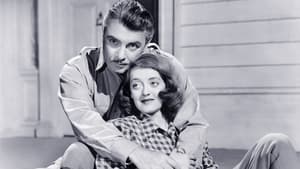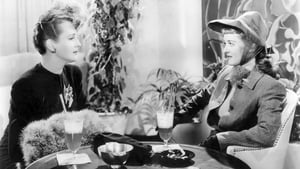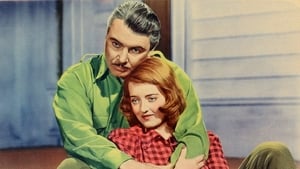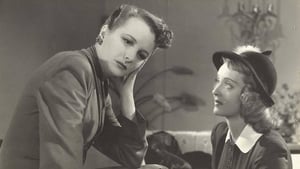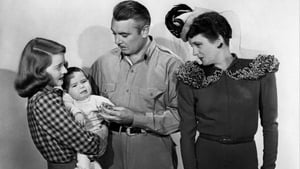Contact: info@alwanfilm.com
Video Sources 0 Views
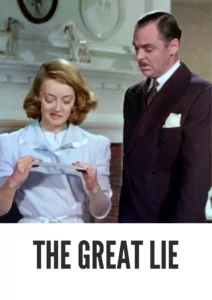
The Great Lie 1941 Colorized
Synopsis
The Great Lie 1941 Colorized Review: A Captivating Film Noir Experience

Introduction
In the realm of classic Hollywood cinema, few films encapsulate the themes of deception, betrayal, and moral ambiguity quite like The Great Lie (1941). Directed by the talented Vincent Sherman, this film stands as a hallmark of the film noir genre, intertwining romance and suspense in a gripping narrative. Starring the formidable Bette Davis and the charismatic George Brent, The Great Lie weaves a complex tale that challenges perceptions of love and loyalty. In this review, we will explore the film’s narrative intricacies, its stunning performances, and its significant place within the broader context of cinema history, especially within the film noir tradition.
Check The Full Colorized Movies List
Check Our Colorized Movies Trailer Channel
Understanding The Great Lie 1941 Colorized: Director, Cast, and Genre
Director’s Vision
Vincent Sherman, an accomplished director known for his work on several significant films during the 1940s, helmed The Great Lie (1941) with a keen understanding of the intricacies of human emotions. His direction is marked by a blend of tension and tenderness, effectively portraying the psychological struggles faced by the characters. Sherman’s ability to create a palpable atmosphere of suspense and intrigue allows the audience to become deeply invested in the unfolding drama.
The Iconic Performance of Actors
At the forefront of The Great Lie is Bette Davis, whose portrayal of the complex character of the manipulative and fiercely protective concert pianist, Sandra L. “Sandy” Hunnicut, is nothing short of extraordinary. Davis brings her signature intensity and emotional depth to the role, expertly navigating the character’s motivations and vulnerabilities. Her performance is a masterclass in the art of acting, showcasing her ability to embody a multifaceted character with grace and strength.
Opposite Davis is George Brent, who plays the dashing and enigmatic Peter K. “P.K.” Hunnicut. Brent’s charm and charisma elevate the film, providing a compelling counterpart to Davis’ character. Their chemistry is palpable, adding layers of tension and complexity to the narrative as their characters navigate the tumultuous waters of love and betrayal.
Exploring the Genre
The Great Lie is firmly rooted in the film noir genre, characterized by its morally ambiguous characters, intricate plot twists, and a pervasive sense of pessimism. The film employs the genre’s signature stylistic elements, including dramatic lighting, shadowy cinematography, and a melancholic score, all of which contribute to the film’s tense atmosphere. As a product of the early 1940s, The Great Lie also reflects the societal anxieties of the time, with themes of deceit and moral ambiguity resonating with audiences in an era marked by global conflict.
Exploring the World of The Great Lie 1941 Colorized: Plot and Characters
Detailed Synopsis
The Great Lie begins with the glamorous life of Sandra Hunnicut, a celebrated concert pianist. When she discovers her husband, Peter Hunnicut, has been involved in a scandalous affair with the much younger and naive music student, the stage is set for a dramatic confrontation. Peter’s duplicity leads to a tragic plane crash, resulting in a significant loss that reverberates throughout the film.
As the narrative unfolds, Sandra becomes embroiled in a web of deception. The film’s tension escalates when Sandra discovers she is pregnant with Peter’s child, creating a moral dilemma that drives the plot. The arrival of a wealthy, kind-hearted businessman, played by Brent, complicates matters further, as Sandra must navigate her feelings for Peter while grappling with her responsibility toward the unborn child.
The climax of the film revolves around a shocking revelation that forces Sandra to confront the consequences of her actions and the depth of her love for Peter. The film masterfully interweaves themes of love, sacrifice, and the moral complexities of human relationships.
The Complex Protagonist and Memorable Supporting Characters
Bette Davis’ character, Sandra, is one of the film’s greatest strengths. Her evolution throughout the film—from a woman scorned to a determined individual seeking redemption—adds depth to the narrative. Supporting characters, such as Peter and the charming businessman, serve to heighten the stakes, contributing to the film’s overall tension and emotional resonance.
The Art of Film Noir
Understanding the Aesthetic
Film noir is characterized by its stylistic elements, including low-key lighting, complex narratives, and morally ambiguous characters. The Great Lie effectively employs these techniques to create a dark and suspenseful atmosphere. The use of shadows, dramatic angles, and a haunting score immerses the audience in the film’s emotional landscape, enhancing the impact of the narrative.
Development of the Genre
The film noir genre emerged in the early 1940s, reflecting the cultural and social anxieties of the time. Influenced by hard-boiled detective fiction and the psychological complexities of post-war society, film noir often features protagonists grappling with their moral dilemmas and the darker aspects of human nature. The Great Lie exemplifies these traits, intertwining romance and suspense to create a gripping narrative that resonates with audiences.
The Legacy of The Great Lie 1941 Colorized
Significance in Film History
The Great Lie holds a significant place in film history as an early example of the film noir genre. Its exploration of themes such as deception, betrayal, and the complexities of love reflects the societal anxieties of the time and foreshadows the evolution of noir narratives in subsequent decades. The film’s focus on strong female characters and their struggles for autonomy adds to its relevance, paving the way for future portrayals of women in cinema.
Influence on Future Films
The themes and stylistic elements presented in The Great Lie have influenced countless films in the noir genre and beyond. Its exploration of moral ambiguity and psychological complexity resonates in later works, showcasing the enduring legacy of Bette Davis’ performance and the film’s narrative structure. The film’s impact can be seen in subsequent noir classics that delve into similar themes, reinforcing its status as a seminal work in the genre.
Themes Explored in The Great Lie 1941 Colorized
Betrayal and Deception
At its core, The Great Lie explores the themes of betrayal and deception, both in personal relationships and broader societal contexts. The film illustrates how lies can unravel lives, showcasing the devastating consequences of betrayal on love and trust. Sandra’s journey from heartbreak to self-discovery is a poignant reflection on the complexities of human emotions and the capacity for resilience.
Love and Sacrifice
The film also delves into the theme of love and sacrifice, examining the lengths to which individuals will go for those they care about. Sandra’s struggle to navigate her feelings for Peter while grappling with her responsibility as a mother raises profound questions about the nature of love and the sacrifices required to uphold it. The film’s resolution highlights the transformative power of love, even in the face of adversity.
Reception and Controversy Surrounding The Great Lie 1941 Colorized
Initial Reviews and Audience Reactions
Upon its release, The Great Lie (1941) received a warm reception from both critics and audiences. Reviewers praised Bette Davis’ performance, highlighting her ability to convey a range of emotions, from vulnerability to strength. The film’s gripping narrative and suspenseful plot twists captivated audiences, solidifying its status as a classic of the film noir genre.
However, some critics expressed concerns about the film’s portrayal of women and the moral implications of its characters’ actions. The film’s complex depiction of love and betrayal sparked discussions about gender roles and the expectations placed on women in society, making it a topic of debate among film scholars and audiences alike.
Where to Watch The Great Lie 1941 Colorized Online
For those eager to experience The Great Lie (1941), the film is available on various streaming platforms. Services such as Amazon Prime Video, Turner Classic Movies, and other classic film channels offer the opportunity to watch this iconic film online. DVD and Blu-ray versions are also available for purchase, providing options for those who wish to own a piece of cinematic history.
FAQs About The Great Lie 1941 Colorized
Q: What is the central theme of The Great Lie (1941)?
A: The film explores themes of betrayal, deception, and the complexities of love, focusing on the moral dilemmas faced by its characters as they navigate their relationships.
Q: Who directed The Great Lie (1941)?
A: The Great Lie was directed by Vincent Sherman, a prominent filmmaker known for his contributions to the film noir genre.
Q: How does Bette Davis’ performance contribute to the film?
A: Bette Davis’ portrayal of Sandra Hunnicut is a highlight of the film, showcasing her ability to embody a complex character with emotional depth and vulnerability.
Q: What is the significance of The Great Lie in film history?
A: The film is notable as an early example of film noir, influencing subsequent works in the genre and highlighting themes of moral ambiguity and the complexities of human relationships.
Conclusion
The Great Lie (1941) remains a captivating film that expertly weaves themes of love, betrayal, and moral complexity into a gripping narrative. Bette Davis’ stellar performance, coupled with Vincent Sherman’s adept direction, creates a film that resonates with audiences even decades after its release. As a significant entry in the film noir genre, The Great Lie offers a compelling exploration of the darker aspects of human nature and the intricacies of relationships. Whether viewed as a classic of its time or as a timeless reflection on the human experience, The Great Lie continues to captivate and provoke thought, solidifying its place in the pantheon of cinematic history.
